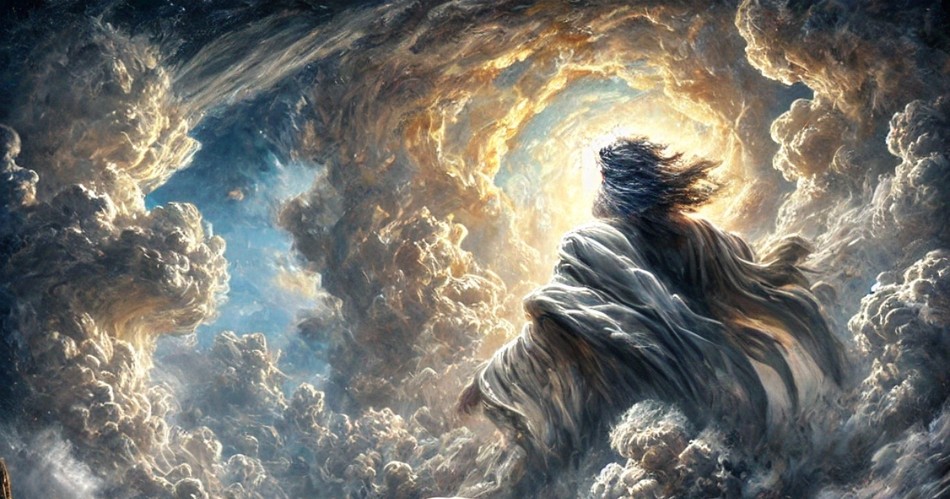In the days and weeks after two massive hurricanes hit the United States in two weeks’ time, extremes from both ends of the ideological spectrum proclaimed the events as unnatural disasters. Many political, media, and activist voices reported these storms as unprecedented and as undeniable evidence of human-caused climate change. In truth, these storms were not “unprecedented.” As Governor Ron DeSantis noted, many hurricanes in the last two centuries have slammed into Florida with equal or greater force. In fact, a majority of the southeast’s worst hurricanes happened in the late 1800s and early 1900s.
Not to be outdone by these climate activists, Majorie Taylor Green joined a few others to blame Helene and Milton on nefarious forces within the Deep State. The claim that these storms were manufactured and aimed at Republican voters in Appalachia and Florida is not worthy of a direct response. Still, the claim reveals that conspiracies, even from those on opposite ends of the political spectrum, have at least one thing in common.
Most conspiracy theories are often based on an exaggerated idea of humanity’s power. In this case, it is the power to control and direct nature. The illusion of control is a feature of modernism and a reason that so many conspiracy theories proliferate today.
In his remarkable book, now decades old, The Way of the Modern World, Craig Gay of Regent College in Vancouver described how secularization envisions humanity as being more in control than it really is. After all, if the world is a creation and a good one at that, it’s likely that the Creator did not make it, nor has He left it, teetering on the verge of disaster. However, in the twentieth century, influential secular thinkers like Stephen Jay Gould and Richard Dawkins concluded just the opposite. From a naturalistic, neo-Darwinian point of view, the odds that humans would ever come into existence are ridiculously slim. Even the slightest divergence of factors along the way would have led to our extinction. Therefore, the slightest change we cause in climate may end the whole accidental, meaningless situation humans currently enjoy.
This is the opposite side of the utopian coin, which concedes to humans the power to perfect the world. Neither is true. At the same time, humans do have an incredible ability for acts of good and evil, and it’s understandable why we give ourselves too much credit. When Elon Musk is catching rockets with gigantic mechanical arms and introducing the world to driverless buses, it’s tempting to think maybe we do control the weather. Or, at least, perhaps we can.
But that’s not the way the world works, even if it does alleviate our collective sense of vulnerability. We are not ultimately in control of this world we did not create. In fact, as Job learned when he asked why all of the bad things had happened to him . . . a good person . . ., his questions were answered with other questions. They were harder questions asked by God that revealed Job’s ignorance about how things really worked in God’s world.
That may be frustrating, but it is also comforting. In this moment, between the Fall and Christ’s return, bad things will happen. Many of them will be, like much of life, beyond our control. To accept that we are not God, that we are not fully in control of much of our own lives much less massive storms, is part of accepting who we truly are. It allows us to rid ourselves of delusion and hubris.
Yes, humans caused the Fall, but we don’t control the weather. Yes, humans broke the world, but the God who made it still oversees it. And if a sparrow cannot fall without his notice and care, we need not think that we’ve somehow moved the world beyond His protection and salvation. Thank God we aren’t that powerful.
Photo Courtesy: ©AI-generated by DALLE
Published Date: November 19, 2024
John Stonestreet is President of the Colson Center for Christian Worldview, and radio host of BreakPoint, a daily national radio program providing thought-provoking commentaries on current events and life issues from a biblical worldview. John holds degrees from Trinity Evangelical Divinity School (IL) and Bryan College (TN), and is the co-author of Making Sense of Your World: A Biblical Worldview.
The views expressed in this commentary do not necessarily reflect those of CrosswalkHeadlines.
BreakPoint is a program of the Colson Center for Christian Worldview. BreakPoint commentaries offer incisive content people can't find anywhere else; content that cuts through the fog of relativism and the news cycle with truth and compassion. Founded by Chuck Colson (1931 – 2012) in 1991 as a daily radio broadcast, BreakPoint provides a Christian perspective on today's news and trends. Today, you can get it in written and a variety of audio formats: on the web, the radio, or your favorite podcast app on the go.




